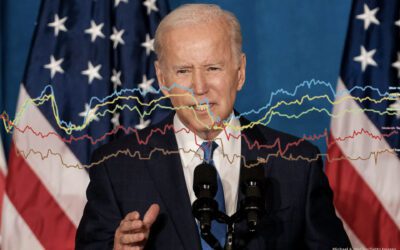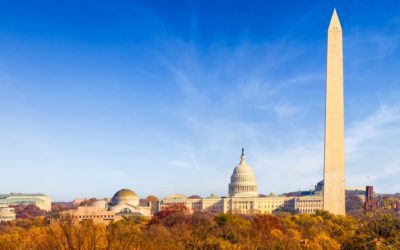A new survey by Democracy Corps and Greenberg Quinlan Rosner, completed on the eve on Congress’ pending vote on President Obama’s budget, shows increasing optimism among the electorate, sustained popularity for the president, and broad support for his priorities and approach to the budget, particularly when framed as a part of a long-term economic program.
Continuing a steady climb since President Obama’s inauguration, the percentage of likely voters saying the country is going in the right direction is up to 38 percent, the highest level we have recorded in over three years. And while deep pessimism remains on the economy, the percent rating the “state of the economy” as cool dropped 6 percent, the first sign of potential warming on the economy in months. The Republican Party remains marginal as the gap in feelings toward the two parties continues to be steady and large.
Meanwhile, Obama continues to sustain his remarkable popularity; his 61 percent favorability rating and 58 percent approval ratings are both near their all-time highs.
More important, the president earns extraordinary ratings on a range of key attributes, with 72 percent saying he is a strong leader and 74 percent saying he is willing to work with both parties, for instance. These scores are down only slightly from the halcyon days immediately following his inauguration. This popularity translates into broad support for President Obama’s approach and priorities on the budget. The Republicans have joined the debate on the budget with an argument that Obama should focus solely on the economy, that we must put deficit reduction first and cannot afford new investments, and that Obama has emerged as a liberal radical after selling himself as a moderate.
Those arguments are repudiated by the results of both this survey and our previous survey from earlier this month. Six-in-ten voters agree with Obama’s argument that we can only fix the economy and create long-term prosperity with a broad agenda that includes investments in health care and energy (versus just 36 percent who agree with critics that say Obama should put those issues on hold until the financial crisis is past). And by nearly two-to-one they agree that Obama is right to seek solutions on a range of issues, not just the economy.
Similarly strong majorities support Obama’s position that we can best balance the budget in the long term by making investments that will lead to economic growth (rather than by limiting spending) and reject the Republican assertion that Obama is trying to implement a radical liberal agenda after campaigning as a moderate. Obama’s budget, when presented alone, has stable majority support, however, that support lacks intensity and does not necessarily move voters to reward Members of Congress who support it. And Republican attacks, particularly those centered on linking the budget to AIG and bailouts, do have an effect, causing a slight shift in support away from the budget.
The concern for progressives is that Obama’s plan might be seen as just a budget and be conflated with the unpopular bailouts of the financial and auto industries. However, if the budget is presented as a part of a plan for long-term economic growth and prosperity, support is significantly stronger and more enthusiastic and causes a small net increase in voters’ intention to vote to reelect their Member, even after facing Republican attacks. This analysis is based on a national survey of 1,000 2008 voters conducted March 25-29, 2009.




